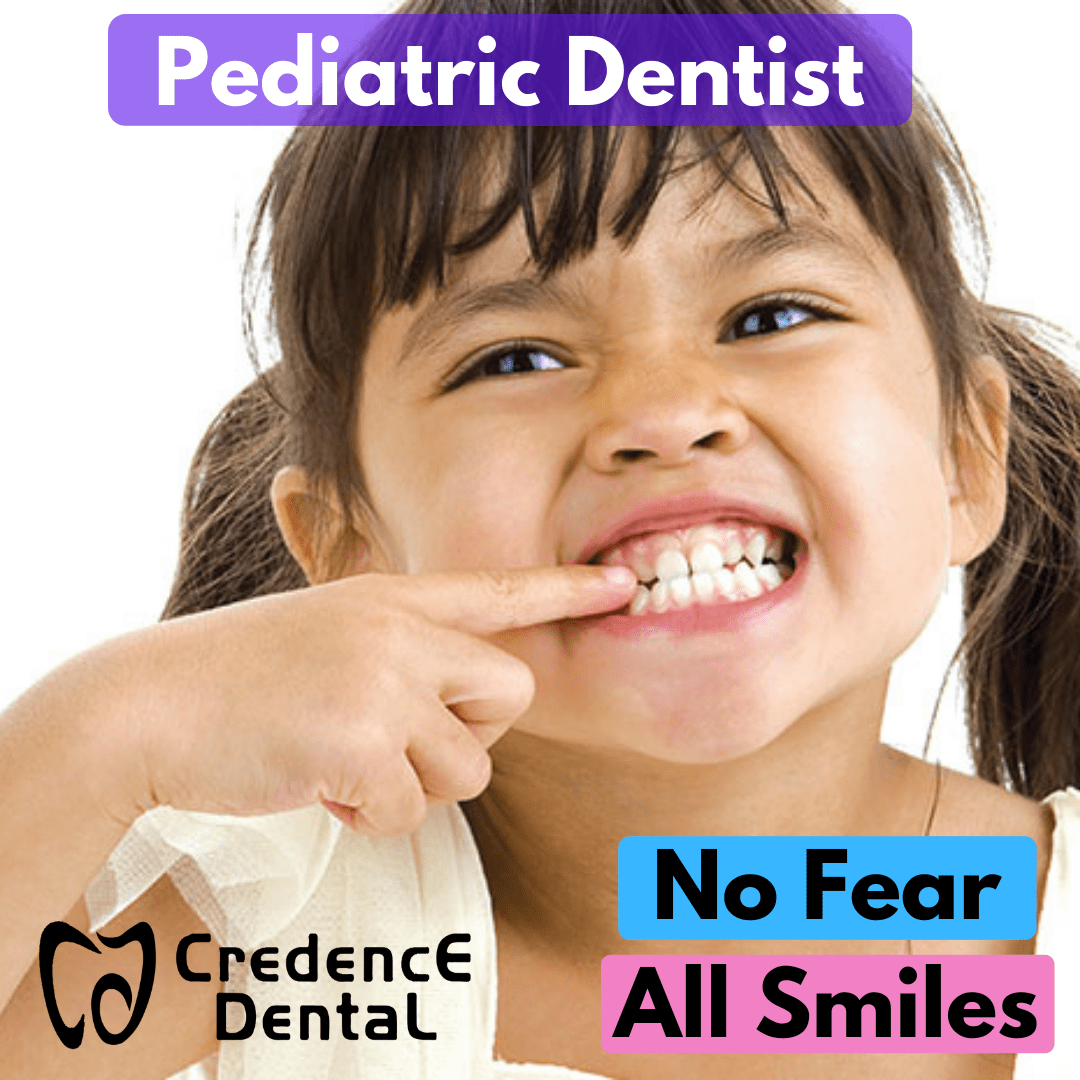As Pediatric Dentists, we believe that ‘smiles can start as early as age one’ and the newborn babies have the most charming innocent smiles.
As we have read here, most babies start teething as early as 6-8 months of age and some after they turn 12 months old. That is exactly when our role as a pediatric dental doctor sets in!
Do you know the type of Treatments Pediatric Dentists Provide?
Pediatric dentists use their extensive expert knowledge to evaluate some of the comprehensive oral and dental health care conditions such as:
- Delayed teething issues in babies or toddlers: For an infant to be suitably weaned onto solids, it’s imperative that the child hits the developmental milestones at the right time, and teething in babies is one of the important milestones. If the teeth or jaw fails to form, this often manifests as late teething which may occur in many babies and needs to be addressed immediately. An untimely tooth eruption can hinder a child’s speech development so the issue needs to be reviewed and treated promptly.
- Tooth decay and dental caries: It is a less known fact that tooth decay is the single most common chronic childhood disease. Baby teeth are more prone to decay compared to permanent teeth as the milk teeth have lesser mineral content than the permanent teeth. Baby teeth are going to fall out eventually but they matter a lot and when the cavities are left untreated, it may cause infections and dental abscesses around the root. This will affect and harm the eruption, growth, and development of the permanent teeth, which develops right below the milk tooth. Untreated cavities can also impair the chewing/masticatory abilities of the child which greatly influences the overall wellbeing and the development of the child.
- Misaligned teeth (Malocclusion): Malocclusion due to developmental issues can be addressed by the pedodontist.
Pedodontists also specialize in various other tasks like:
- Child’s special oral care needs and dental health exams
- Preventive dental care like teeth cleaning and fluoride applications, application of sealants and special counseling and recommendations on child’s nutrition and diet
- Toothaches due to an abscess or broken, cracked tooth are considered dental emergencies
- Breaking the child’s habit by discouraging thumb sucking, pacifier use, and finger sucking habits through different devices and methods as a part of oral habit counseling
- Focusing on long term space changes and management if the primary tooth is lost in case there is a premature loss of teeth
- Early assessments for correcting an improper bite (orthodontic treatment) and straightening teeth that are misaligned
- Dental injuries like a displaced or fractured tooth that needs to be repaired or cared for
- Diagnosis of oral conditions that are associated with some of the diseases like a congenital heart defect, asthma, diabetes, hay fever, and attention deficit hyperactivity disorder, etc.
- Ulcers, mucoceles, pediatric periodontal diseases, and other gum disease management.
Our pediatric dentists encourage parents to start timely and preventive dental check-ups for their child. Following are some of the guidelines our pediatric dental specialist suggests for Infant Oral Health Care:
- Brush and Floss teeth every day: To maintain a healthy set of teeth for life, brush your teeth at least twice a day and flossing it right after eating to eliminate harmful bacteria from the mouth is a good practice and the most effective way to remove plaque and debris from a child’s teeth.
- Using toothpaste that contains fluoride: Dentists recommend that fluoride toothpaste should be a part of your child’s dental routine as fluoride makes the teeth strong and helps prevent cavities but just make sure that your child uses a very little amount of toothpaste because swallowing fluoride products increase the risk of fluorosis, a condition that causes changes in the appearance of tooth enamel in little kids.
- Frequent and regular dental appointments: The dentists will provide strategies to decrease the risk of tooth decay by evaluating the general conditions of your child’s mouth.
- Nutritional Assessment & Diet evaluation: Diet and nutrition play a key role in a child’s overall dental health as the food that they eat has a lasting effect on their teeth which could do some crucial damage. The risk of cavities and decay is greater when the child’s teeth are exposed to sugary food items more frequently.
At Credence Dental, as a pediatric doctor, our primary goal is to use our professional expertise, and retain a child’s healthy radiant picture-perfect smile and assure that our little patients feel safe and relaxed when undergoing dental treatments. We ensure that a child’s pediatric dental experience turns out to be a positive one and they would be happy to return.
Our dentists are dedicated to providing exceptional oral healthcare so that the little ones’ dental appointments will be non-traumatic and stress-free. Our Pedodontists make sure the child is comforted and ready for treatment by communicating in a kind and compassionate manner. Based upon a child’s dental health history, severity, special health care needs, and parental preferences, suggestions on dental treatments are provided by our dentists for the emotional, intellectual development, and the well-being of a child.
Call us or Whatsapp us at +91-9141160212 to book an appointment today with our Pediatric dentistry Specialist.




